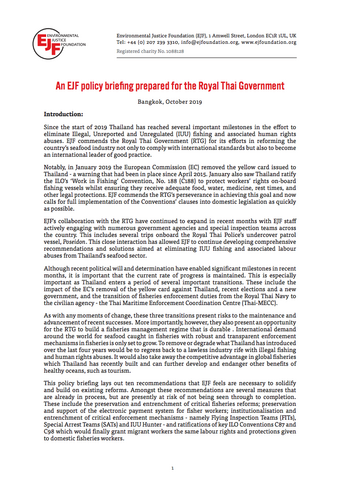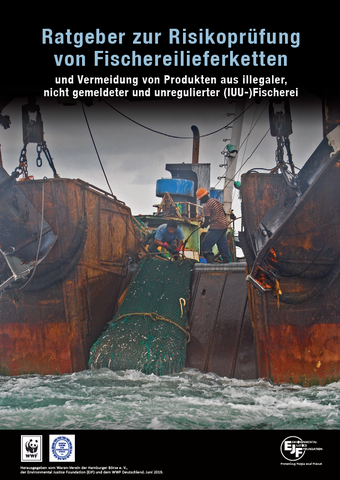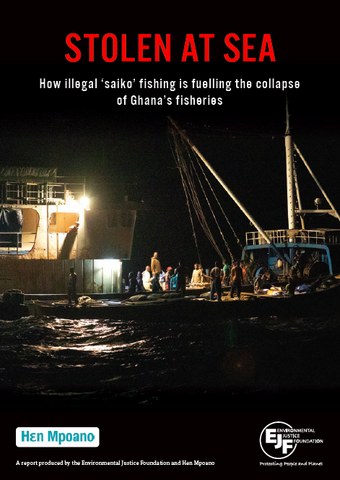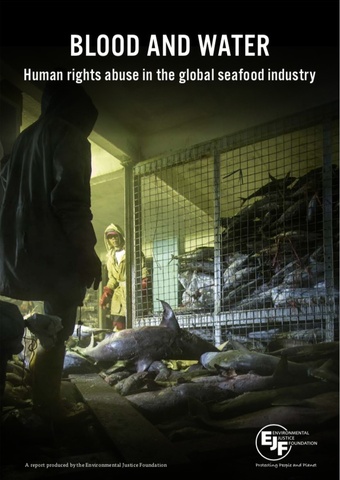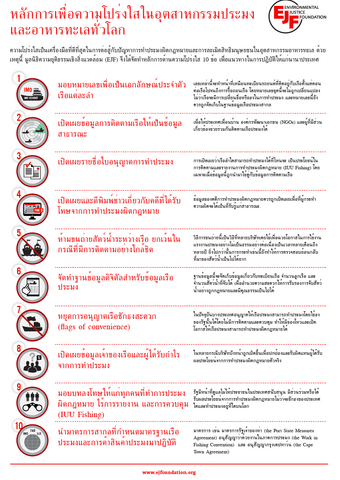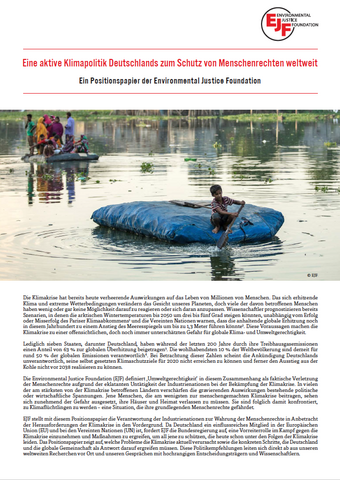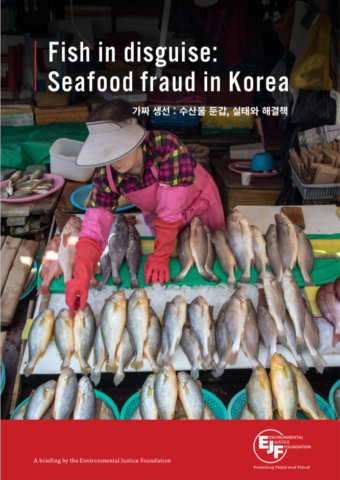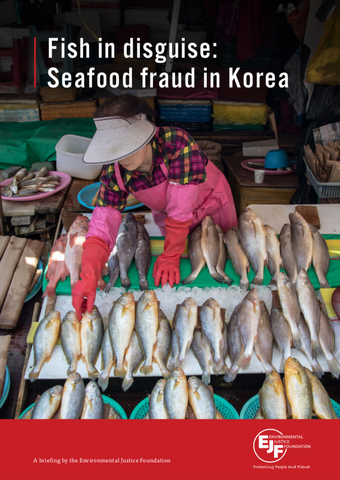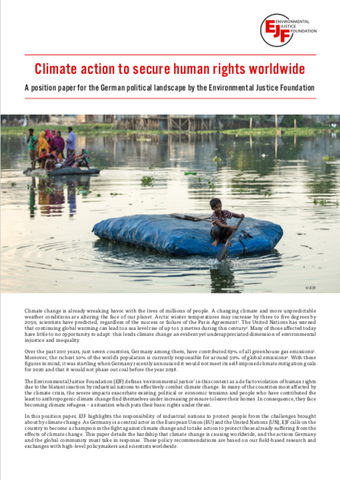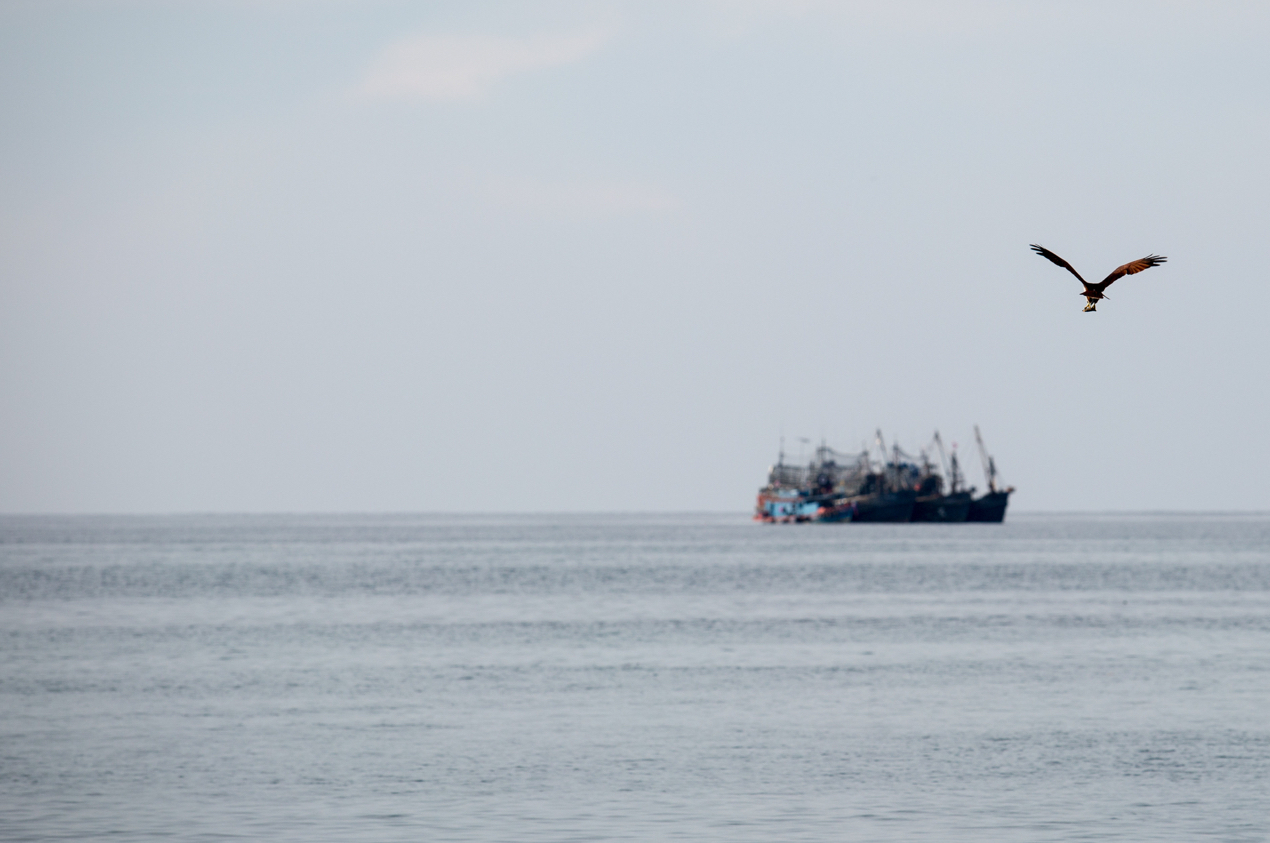
Search results
Showing 921-960 result returned for ""
-
Reports
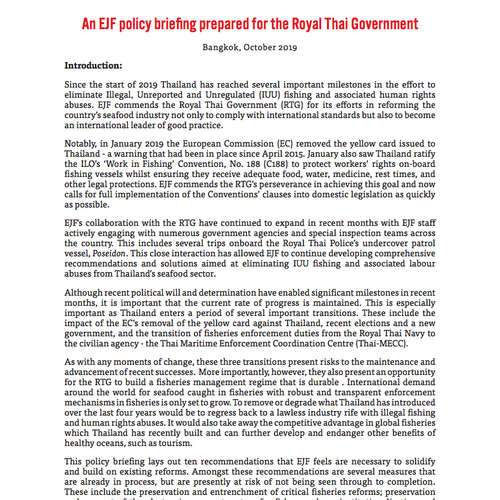 Jun 14, 2019An EJF policy briefing prepared for the Royal Thai GovernmentRead
Jun 14, 2019An EJF policy briefing prepared for the Royal Thai GovernmentReadThe Royal Thai Government has continued to make considerable progress in addressing and eliminating illegal, unreported and unregulated fishing and associated human rights abuses. EJF staff are also now actively engaging with numerous government agencies and special inspection teams across the country.
-
News & Media
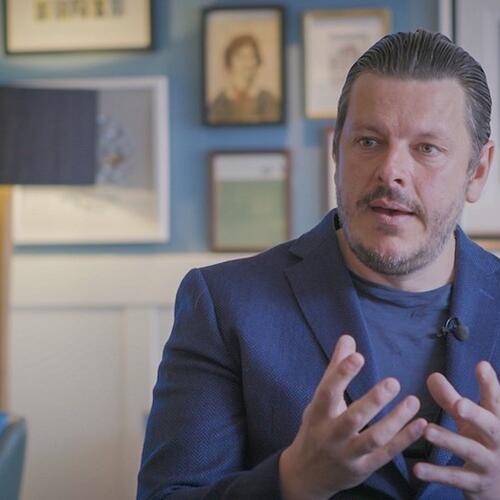 Jun 13, 2019Sustainable seafood restaurants join campaign to Save the SeaRead
Jun 13, 2019Sustainable seafood restaurants join campaign to Save the SeaRead -
News & Media
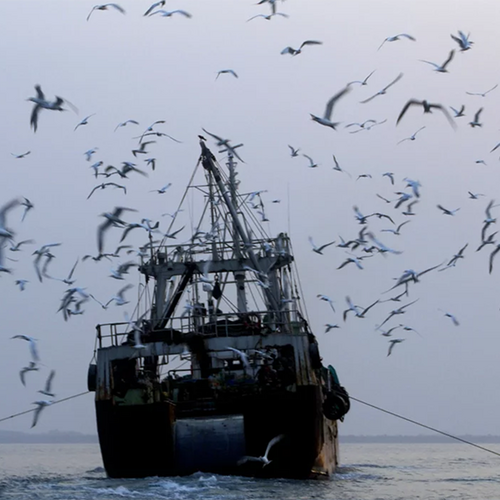 Jun 11, 2019Eradicating illegal fishing and improving transparency in Regional Fisheries Management OrganisationsRead
Jun 11, 2019Eradicating illegal fishing and improving transparency in Regional Fisheries Management OrganisationsRead -
Reports
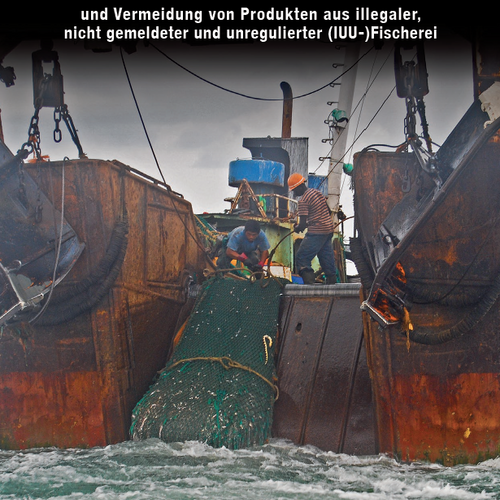 Jun 11, 2019Ratgeber zur Risikoprüfung von FischereilieferkettenRead
Jun 11, 2019Ratgeber zur Risikoprüfung von FischereilieferkettenReadUnser Ratgeber hilft Einzelhändlern und Unternehmen dabei, ihre Lieferketten frei von Produkten aus illegaler Fischerei zu halten. Er wurde gemeinsam mit WWF Deutschland und dem Waren-Verein der Hamburger Börse e. V. entwickelt und listet konkrete Maßnahmen, um die Risiken durch illegalen Fang einzuschätzen und abzumindern. Aktiv angewendet kann er die Maßnahmen von Unternehmen zum nachhaltigen Fischeinkauf praxisnah und kosteneffektiv stärken.
-
News & Media
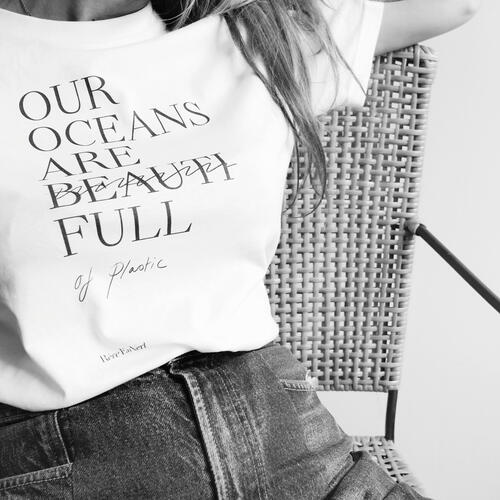 Jun 10, 2019Treasure chest of tees: Sustainable designers donate T-shirts to EJF’s Save the Sea campaignRead
Jun 10, 2019Treasure chest of tees: Sustainable designers donate T-shirts to EJF’s Save the Sea campaignRead -
News & Media
 Jun 10, 2019Treasure chest of tees: Sustainable designers donate T-shirts to EJF’s Save the Sea campaignRead
Jun 10, 2019Treasure chest of tees: Sustainable designers donate T-shirts to EJF’s Save the Sea campaignRead -
Reports
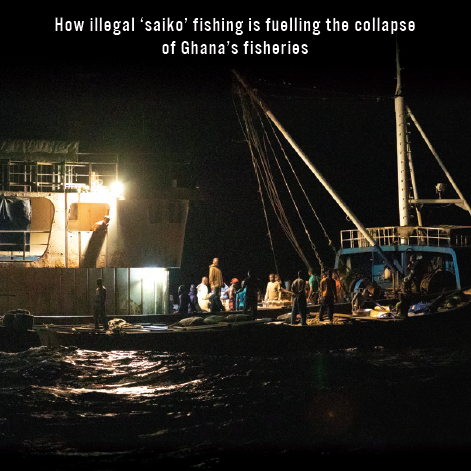 Jun 10, 2019Stolen at sea: How illegal ‘saiko’ fishing is fuelling the collapse of Ghana’s fisheriesRead
Jun 10, 2019Stolen at sea: How illegal ‘saiko’ fishing is fuelling the collapse of Ghana’s fisheriesRead -
News & Media
 Jun 07, 2019World Oceans Day: how top restaurants are making waves to Save the SeaRead
Jun 07, 2019World Oceans Day: how top restaurants are making waves to Save the SeaRead
-
News & Media
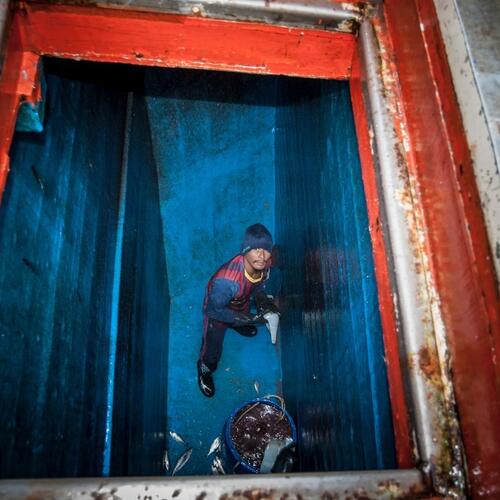 Jun 05, 2019Full scale of human rights abuse in the fishing industry revealedRead
Jun 05, 2019Full scale of human rights abuse in the fishing industry revealedRead -
News & Media
 Jun 05, 2019Full scale of human rights abuse in the fishing industry revealedRead
Jun 05, 2019Full scale of human rights abuse in the fishing industry revealedRead -
Reports
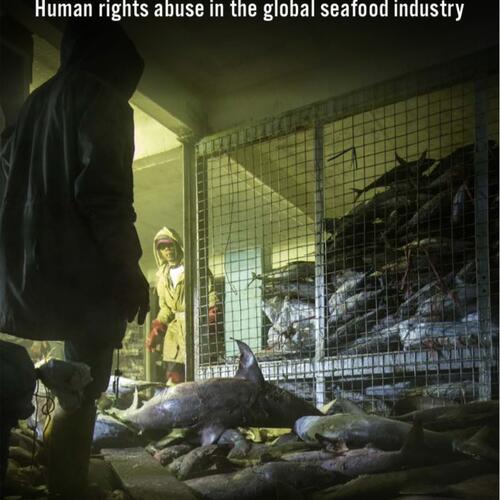 Jun 05, 2019Blood and Water: Human rights abuse in the global seafood industryRead
Jun 05, 2019Blood and Water: Human rights abuse in the global seafood industryReadThis report shows that human rights abuse is rife in the fishing industry - detailing cases of slavery, debt bondage, insufficient food and water, filthy living conditions, physical and sexual assault and even murder aboard fishing vessels from 13 countries operating across three oceans.
-
About EJF
 Jun 04, 2019PressRead
Jun 04, 2019PressRead
-
Executive Summaries
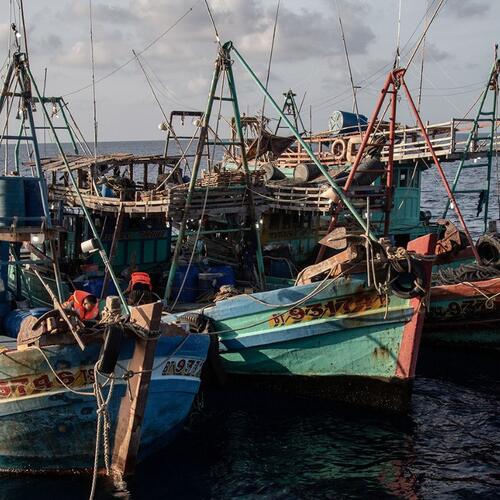 Jun 04, 2019Blood and WaterRead
Jun 04, 2019Blood and WaterRead -
Films
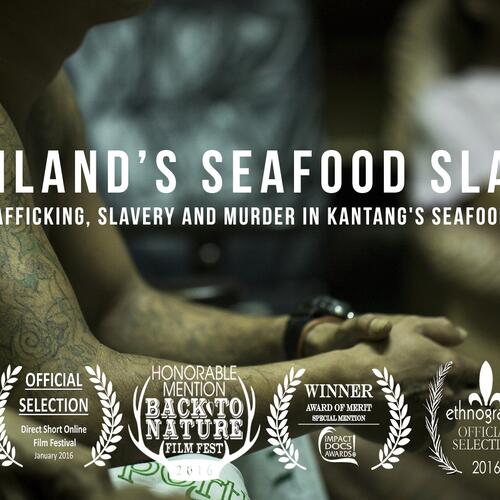 Jun 03, 2019Thailand's Seafood Slaves: Human Trafficking, Slavery and Murder in Kantang's Seafood IndustryRead
Jun 03, 2019Thailand's Seafood Slaves: Human Trafficking, Slavery and Murder in Kantang's Seafood IndustryReadThailand's Seafood Slaves: Human Trafficking, Slavery and Murder in Kantang's Seafood Industry
-
Films
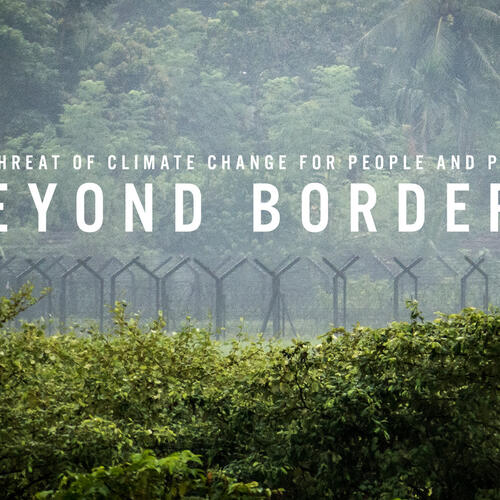 Jun 03, 2019Beyond Borders - the threat of climate changeRead
Jun 03, 2019Beyond Borders - the threat of climate changeReadBeyond Borders - the threat of climate change
The climate crisis represents the greatest threat to global peace and security, development and the preservation of human rights in the 21st century.
-
Reports
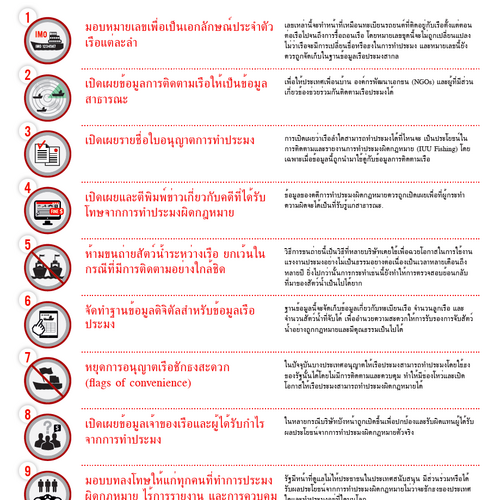 May 29, 201910 หลักการเพื่อความโปร่งใสในอุตสาหกรรมประมงและอาหารทะเลทั่วโลก - ฉบับภาษาไทย Ten principles of transparencyRead
May 29, 201910 หลักการเพื่อความโปร่งใสในอุตสาหกรรมประมงและอาหารทะเลทั่วโลก - ฉบับภาษาไทย Ten principles of transparencyReadความโปร่งใสเป็นเครื่องมือที่ดีที่สุดในการต่อสู้กับปัญหาการทำประมงผิดกฎหมายและการละเมิดสิทธิมนุษยชนในอุตสาหกรรมอาหารทะเล ด้วยเหตุนี้ มูลนิธิความยุติธรรมเชิงสิ่งแวดล้อม (EJF) จึงได้จัดทำหลักการด้านความโปร่งใส 10 ข้อ เพื่อแนวทางในการปฎิบัติให้แก่นานาประเทศ
-
Reports
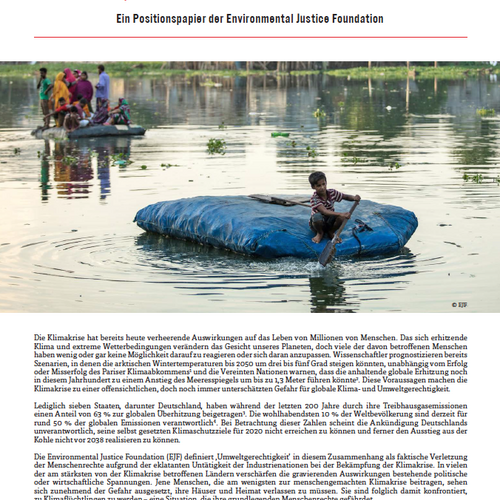 May 28, 2019Positionspapier | Aktive Klimapolitik zum Schutz der MenschenrechteRead
May 28, 2019Positionspapier | Aktive Klimapolitik zum Schutz der MenschenrechteReadIndustrienationen sind in der Verantwortung die Wahrung der Menschenrechte in Anbetracht der Klimakrise in den Vordergrund zu rücken. Da Deutschland ein einflussreiches Mitglied in der Europäischen Union (EU) und innerhalb den Vereinten Nationen (UN) ist, fordert EJF mit diesem Positionspapier die Bundesregierung auf, eine Vorreiterrolle im Kampf gegen die Klimakrise einzunehmen und Maßnahmen zu ergreifen, um all jene zu schützen, die heute schon unter den Folgen der Klimakrise leiden.
-
News & Media
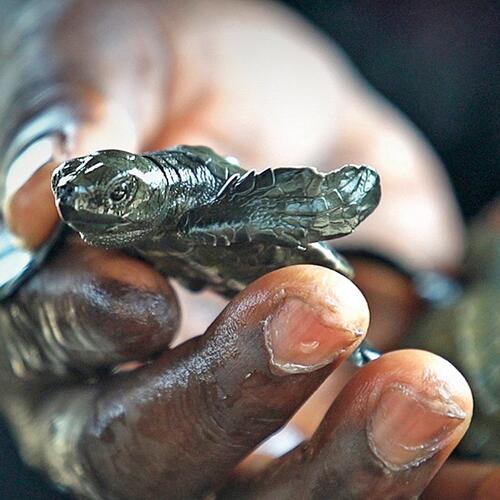 May 23, 2019World Turtle Day: a spotlight on EJF’s work in LiberiaRead
May 23, 2019World Turtle Day: a spotlight on EJF’s work in LiberiaRead -
News & Media
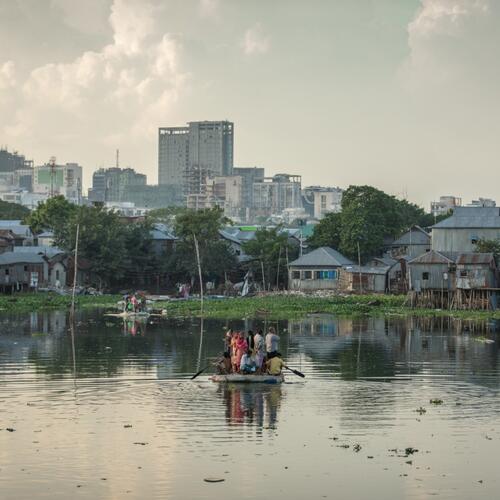 May 23, 2019The Gathering Storm: the need for international protection for climate refugeesRead
May 23, 2019The Gathering Storm: the need for international protection for climate refugeesRead -
News & Media
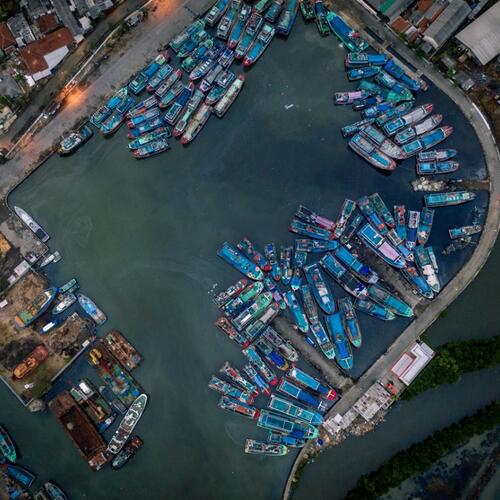 May 16, 2019We’re on a roll: EJF’s Charter for Transparency gains momentum as M&S and Waitrose sign upRead
May 16, 2019We’re on a roll: EJF’s Charter for Transparency gains momentum as M&S and Waitrose sign upRead
-
News & Media
 May 16, 2019M&S + Waitrose & Partners sign EJF Charter for Transparency to end illegal fishing and slavery at seaRead
May 16, 2019M&S + Waitrose & Partners sign EJF Charter for Transparency to end illegal fishing and slavery at seaRead -
Films
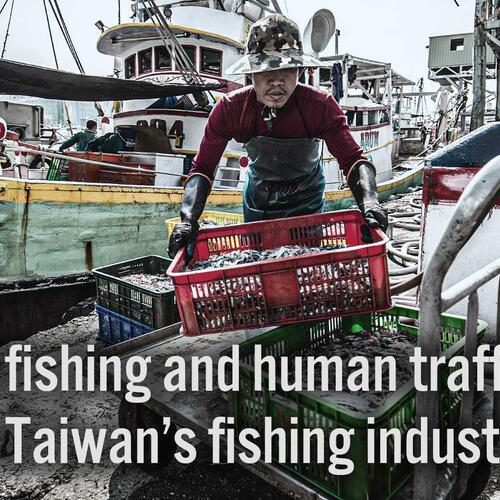 May 15, 2019Illegal fishing and human trafficking in Taiwan's fishing industryRead
May 15, 2019Illegal fishing and human trafficking in Taiwan's fishing industryReadIllegal fishing and human trafficking in Taiwan's fishing industry
-
News & Media
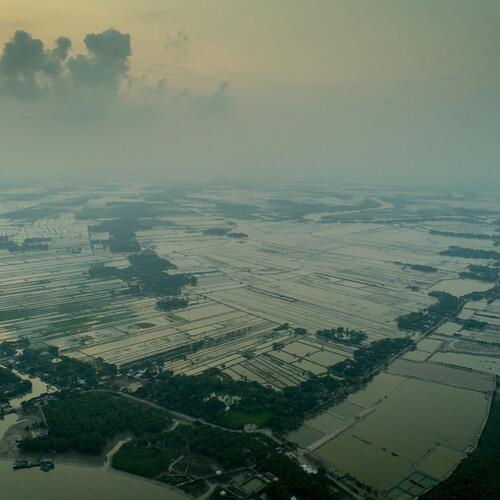 May 09, 2019UK declares climate emergency: now it needs to act like we’re in oneRead
May 09, 2019UK declares climate emergency: now it needs to act like we’re in oneRead -
News & Media
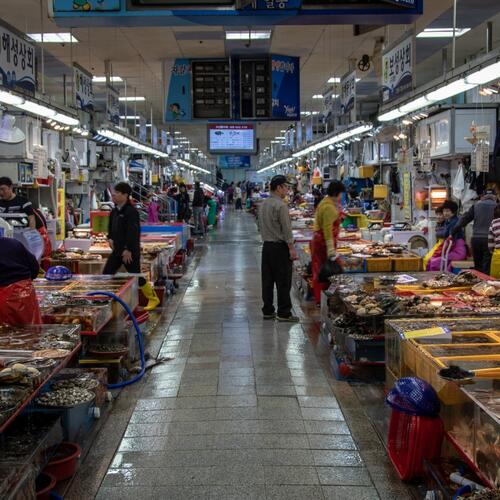 May 02, 2019Seafood fraud common in Korea, DNA study revealsRead
May 02, 2019Seafood fraud common in Korea, DNA study revealsRead
-
Films
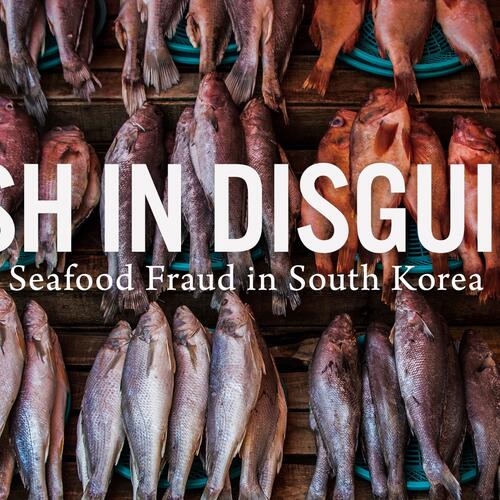 Apr 30, 2019Fish in Disguise: Seafood Fraud in South KoreaRead
Apr 30, 2019Fish in Disguise: Seafood Fraud in South KoreaReadFish in Disguise: Seafood Fraud in South Korea
-
News & Media
 Apr 30, 2019Widespread seafood fraud in Korea, EJF DNA testing revealsRead
Apr 30, 2019Widespread seafood fraud in Korea, EJF DNA testing revealsRead -
Reports
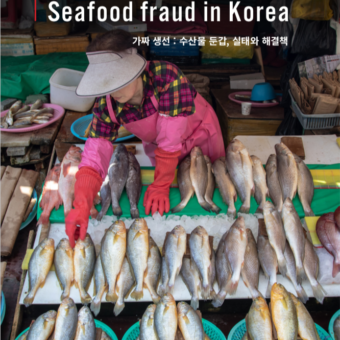 Apr 30, 2019Fish in disguise: Seafood fraud in Korea (Korean version)Read
Apr 30, 2019Fish in disguise: Seafood fraud in Korea (Korean version)ReadBetween January and December 2018, EJF used DNA testing to determine levels of seafood fraud in the Republic of Korea. The results showed that over a third of samples tested were mislabelled. This mislabelling defrauds consumers, risks public health, harms the marine environment and can be associated with serious human rights abuses across the world. These findings demonstrate the urgent need for greater transparency and traceability in Korean seafood.
-
Reports
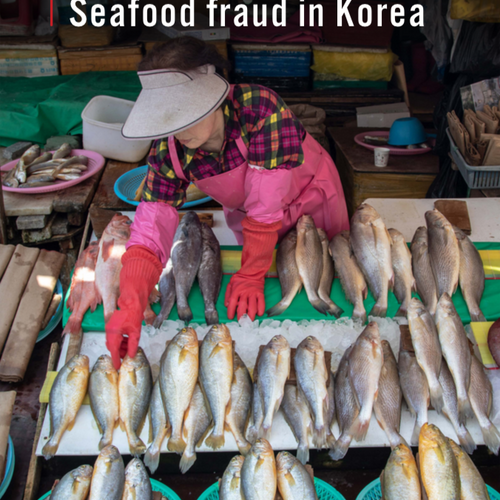 Apr 30, 2019Fish in disguise: Seafood fraud in KoreaRead
Apr 30, 2019Fish in disguise: Seafood fraud in KoreaReadBetween January and December 2018, EJF used DNA testing to determine levels of seafood fraud in the Republic of Korea. The results showed that over a third of samples tested were mislabelled. This mislabelling defrauds consumers, risks public health, harms the marine environment and can be associated with serious human rights abuses across the world. These findings demonstrate the urgent need for greater transparency and traceability in Korean seafood.
-
News & Media
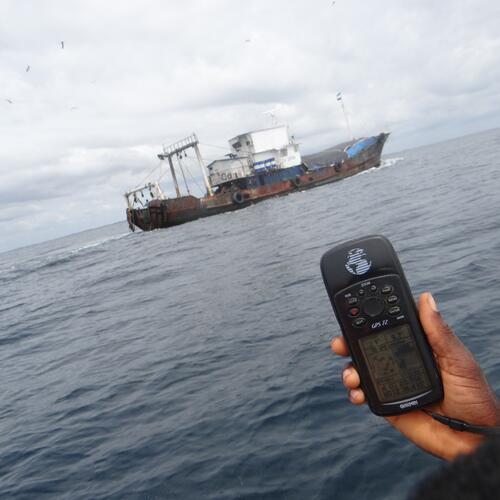 Apr 25, 2019Red flags: The story of the Mahawa and transparency standards in fishingRead
Apr 25, 2019Red flags: The story of the Mahawa and transparency standards in fishingRead -
News & Media
 Apr 24, 2019Ending abuse in Taiwan's fishing fleetRead
Apr 24, 2019Ending abuse in Taiwan's fishing fleetRead -
News & Media
 Apr 18, 2019CLIMATE COMMITMENT: EJF AND GREEN ENERGYRead
Apr 18, 2019CLIMATE COMMITMENT: EJF AND GREEN ENERGYRead -
Campaign Stories
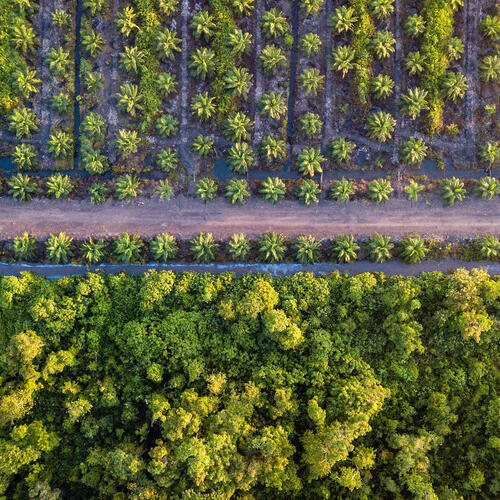 Apr 10, 2019Ending deforestation for palm oilRead
Apr 10, 2019Ending deforestation for palm oilRead
-
News & Media
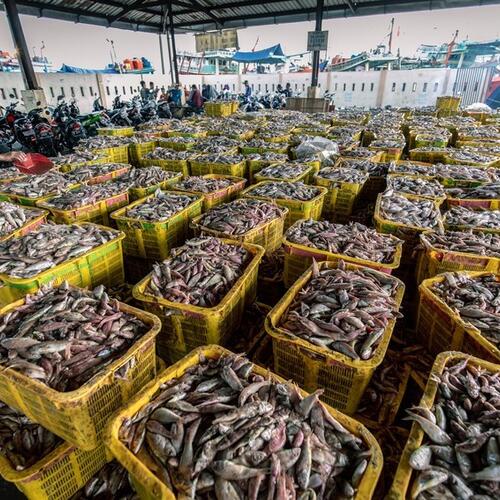 Apr 10, 2019Co-op, Sainsbury’s and Tesco sign EJF Charter for Transparency to end illegal fishing and slavery at seaRead
Apr 10, 2019Co-op, Sainsbury’s and Tesco sign EJF Charter for Transparency to end illegal fishing and slavery at seaRead -
News & Media
 Apr 10, 2019Co-op, Sainsbury’s and Tesco sign EJF transparency charter to end illegal fishing and slavery at seaRead
Apr 10, 2019Co-op, Sainsbury’s and Tesco sign EJF transparency charter to end illegal fishing and slavery at seaRead -
News & Media
 Apr 10, 2019Ending deforestation for palm oilRead
Apr 10, 2019Ending deforestation for palm oilRead -
News & Media
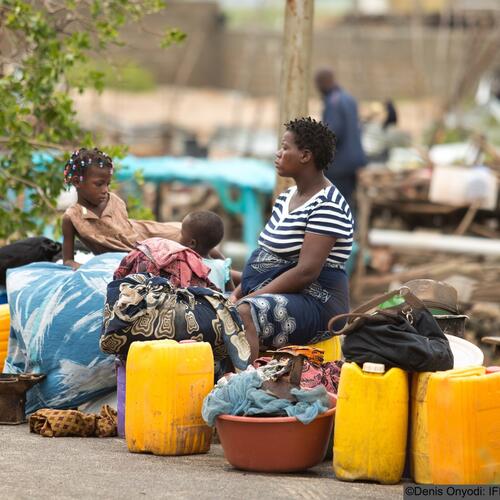 Mar 29, 2019Cyclone Idai 'climate injustice wake up call'Read
Mar 29, 2019Cyclone Idai 'climate injustice wake up call'Read
-
Reports
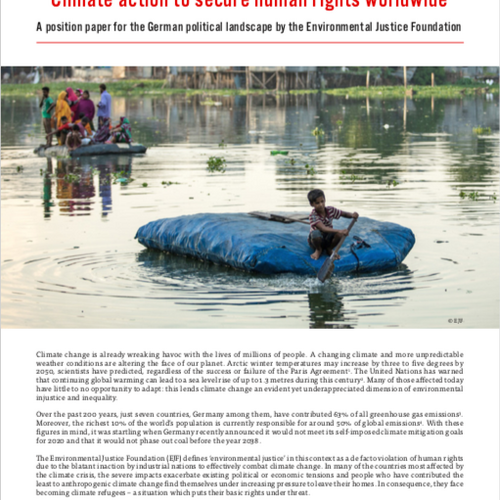 Mar 28, 2019Climate action to secure human rights worldwide: A position paper for the German political landscapeRead
Mar 28, 2019Climate action to secure human rights worldwide: A position paper for the German political landscapeReadAscending to the UN Security Council this year, and in 2020 assuming presidency of the EU, Germany is being given a prime opportunity to shape global action on climate change. In order to become a credible leader, Germany must meet its 2020 emissions reduction target, and create a legal structure in which it cannot fail to achieve net zero emissions by 2050 at the latest. As well as mitigating climate change, Germany can safeguard the rights of those being forced to flee their homes because of global warming, facilitating and enshrining an international agreement to protect climate refugees. EJF's briefing explains why Germany must rise to the challenge.
-
News & Media
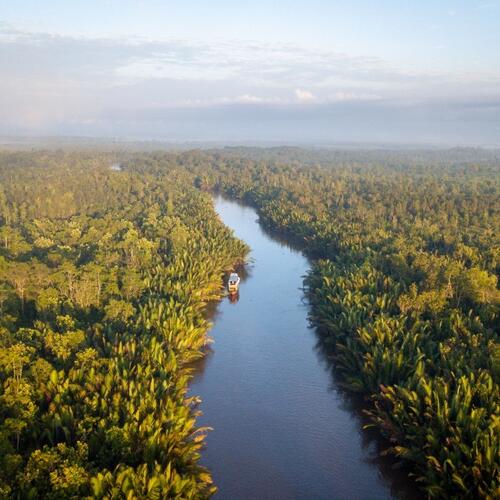 Mar 21, 2019RED herring: Can the revised EU Renewable Energy Directive save the world’s forests?Read
Mar 21, 2019RED herring: Can the revised EU Renewable Energy Directive save the world’s forests?Read -
News & Media
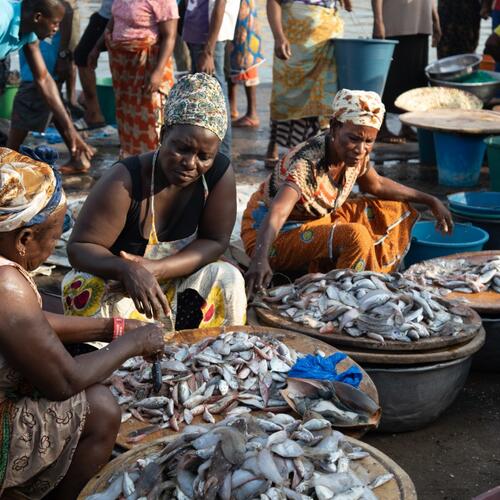 Mar 08, 2019Women at the heart of sustainable fisheriesRead
Mar 08, 2019Women at the heart of sustainable fisheriesRead -
News & Media
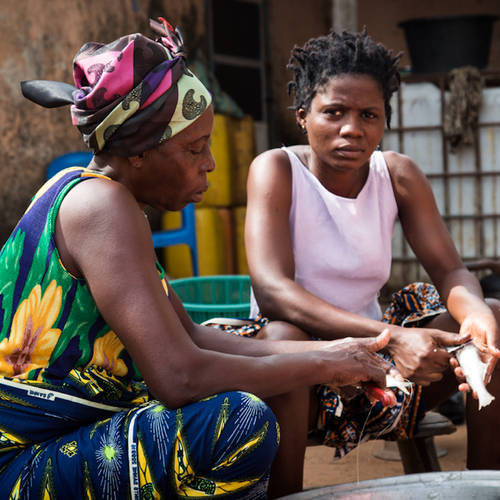 Mar 07, 2019Ghana’s queen fishmongers: balancing gender for sustainable fisheriesRead
Mar 07, 2019Ghana’s queen fishmongers: balancing gender for sustainable fisheriesRead
